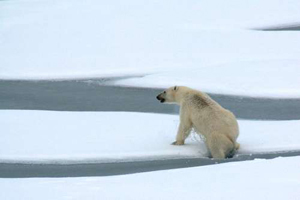Analysis of Greenland Ice Cores Adds to Historical Record and May Provide Glimpse into Climate’s Future
The International North Greenland Eemian Ice Drilling (NEEM) project results indicate that melting of Antarctic ice sheet may have contributed more to sea level rise than melting of the Greeland ice sheet some 100,000 years ago
A new study that provides surprising details on changes in Earth’s climate from more than 100,000 years ago indicates that the last interglacial–the period between “ice ages”–was warmer than previously thought and may be a good analog for future climate, as greenhouse gases increase in the atmosphere and global temperatures rise.
The research findings also indicate that melting of the massive West Antarctic ice sheet may have contributed more to sea-level rise at that time than melting of the Greenland ice sheet. (more…)

